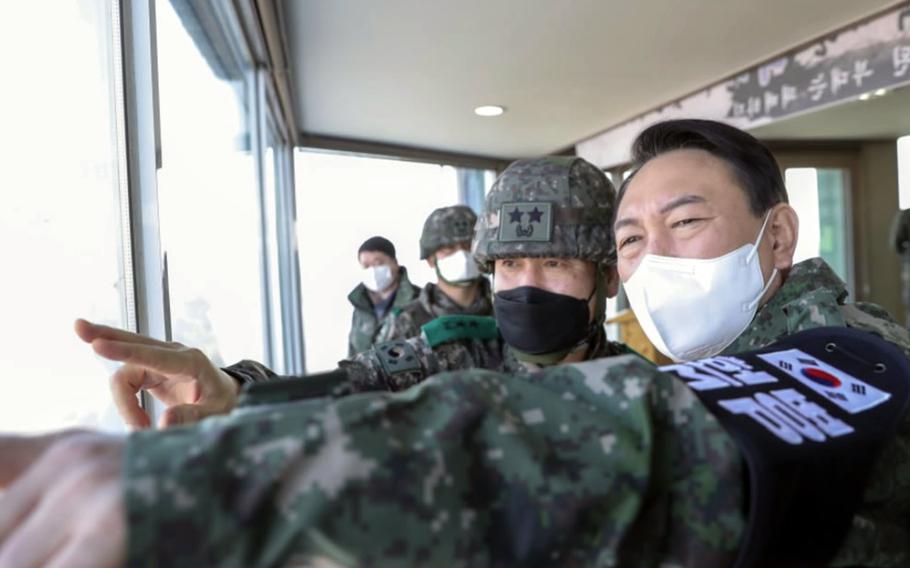In a historic and tense confrontation, South Korea’s impeached President Yoon Suk Yeol narrowly avoided arrest on Friday when his presidential guards and military personnel thwarted an attempt by investigators to detain him at his official residence in Seoul. The six-hour standoff, marked by high drama and escalating tensions, underscores the political and legal turmoil engulfing Asia’s fourth-largest economy.
Yoon, impeached on December 14 following his surprise declaration of martial law on December 3, faces criminal charges of insurrection. His controversial move to impose martial law, citing political deadlock and alleged threats from “anti-state forces,” shocked the nation and led to his impeachment in a swift parliamentary vote.
A Chaotic Morning at the Presidential Residence
Shortly after 7 a.m. on Friday, officials from the Corruption Investigation Office for High-ranking Officials (CIO), accompanied by police, arrived at Yoon’s presidential compound to execute an arrest warrant approved earlier this week. Hundreds of Yoon supporters, chanting slogans reminiscent of the “Stop the Steal” movement in the U.S., had gathered outside the compound to block the arrest.
Inside, the situation quickly escalated. More than 200 personnel from the Presidential Security Service (PSS) and military troops loyal to Yoon cordoned off investigators. Though some guards appeared armed, no weapons were drawn, and physical altercations remained limited, according to the CIO.
The CIO eventually suspended the arrest operation around 1:30 p.m., citing safety concerns for its personnel. A spokesperson expressed “deep regret” over Yoon’s refusal to comply and confirmed that further steps are being evaluated.
Legal and Political Ramifications
The standoff raises questions about the limits of presidential immunity and the role of the PSS in obstructing justice. South Korea’s police have now designated the PSS chief and deputy as suspects in a criminal investigation for obstructing official duties. Both have been summoned for questioning.
Legal experts suggest that targeting the PSS leadership may weaken the security cordon around Yoon and facilitate future arrest attempts. Kim Seon-taek, a law professor at Korea University, argued that a more efficient approach would involve acting President Choi Sang-mok ordering the PSS to cooperate.
Choi, however, has remained silent on the issue. The CIO has formally requested his intervention but has yet to receive a response.
Yoon’s Defiance and Legal Strategy
Yoon’s legal team has denounced the arrest attempt as unlawful, arguing that the CIO lacks the authority to investigate insurrection. They have also filed criminal complaints against media outlets for unauthorized coverage of the presidential residence, citing national security concerns.
The arrest warrant for Yoon remains valid until January 6, leaving investigators a narrow window to make another attempt. If arrested, Yoon can only be detained for 48 hours before a decision must be made to request a detention warrant or release him.
Separately, the Constitutional Court is reviewing Yoon’s impeachment case. The second hearing occurred on Friday, with oral arguments scheduled for January 14. Yoon’s defense has cited a U.S. Supreme Court ruling granting presidential immunity to Donald Trump as part of its argument for reinstatement.
A Nation in Turmoil
The political crisis has further polarized South Korean society. Hundreds of anti-Yoon protesters clashed with police outside the presidential residence on Friday, while Yoon’s supporters accused investigators of conducting a politically motivated witch hunt.
Yoon’s martial law declaration last month, which he justified as necessary to address political opposition and election tampering, was rescinded within six hours amid widespread condemnation. Two senior military officials involved in the decree have been indicted, while former Defense Minister Kim Yong-hyun is in detention, facing charges of insurrection and abuse of power.
North Korea has seized upon the crisis, with state media describing Yoon’s actions as criminal and alleging he has “denied his crimes with sheer lies.” Pyongyang has long criticized Yoon’s hardline policies and recently declared unification with the South no longer a national goal.
As the nation watches this unprecedented drama unfold, the resolution of Yoon’s impeachment and criminal investigations will undoubtedly have lasting implications for South Korea’s democracy and governance.



